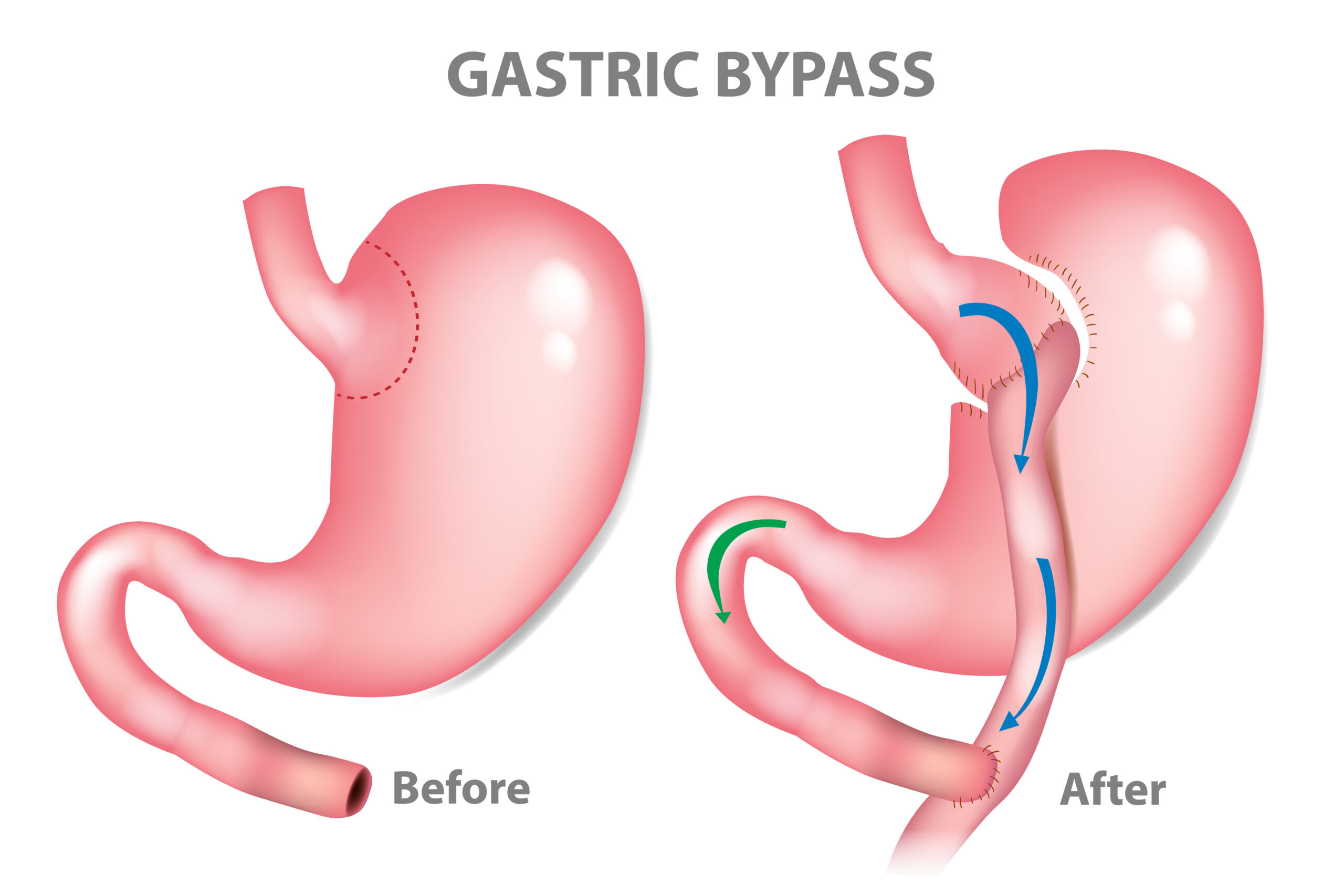Gastric Bypass

What is Gastric Bypass?
Gastric bypass is a surgical procedure to help people with obesity lose weight. It involves creating a small pouch in the stomach and bypassing a portion of the small intestine. This reduces the amount of food that can be consumed and absorbed by the body.
How is Gastric Bypass Performed?
Gastric bypass surgery is typically performed under general anesthesia. The surgeon makes a small incision in the abdomen and creates a small pouch in the stomach. The small intestine is then rerouted to bypass part of the stomach.
After Treatment
Recovery from gastric bypass surgery typically takes several weeks. It’s important to follow your surgeon’s post-operative instructions carefully, which may include:
• Avoiding strenuous activity for several weeks.
• Taking pain medication as prescribed to manage discomfort.
Attending follow-up appointments with your surgeon to monitor your healing progress.
• Avoiding strenuous activity for several weeks.
• Taking pain medication as prescribed to manage discomfort.
Attending follow-up appointments with your surgeon to monitor your healing progress.
Things to Be Careful About
While gastric bypass is a safe and effective procedure for many people, there are potential risks and complications associated with it. These may include:
• Nutritional deficiencies: Gastric bypass can lead to nutritional deficiencies, so it’s important to follow a healthy diet and take supplements as recommended by your doctor.
• Dumping syndrome: This is a condition that can cause symptoms such as nausea, vomiting, and diarrhea.
• Internal bleeding: There is a small risk of internal bleeding after gastric bypass surgery.
• Infection: There is a risk of infection at the incision site.
• Weight regain: If you do not follow a healthy diet and exercise plan, you may regain weight after the surgery.
If you’re considering gastric bypass, it’s important to discuss the risks and benefits with your surgeon to determine if it’s the right procedure for you.
• Nutritional deficiencies: Gastric bypass can lead to nutritional deficiencies, so it’s important to follow a healthy diet and take supplements as recommended by your doctor.
• Dumping syndrome: This is a condition that can cause symptoms such as nausea, vomiting, and diarrhea.
• Internal bleeding: There is a small risk of internal bleeding after gastric bypass surgery.
• Infection: There is a risk of infection at the incision site.
• Weight regain: If you do not follow a healthy diet and exercise plan, you may regain weight after the surgery.
If you’re considering gastric bypass, it’s important to discuss the risks and benefits with your surgeon to determine if it’s the right procedure for you.
